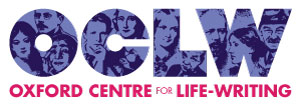In 2006 David Lodge expressed surprise at how popular biographical novels have become. Also described in academic literature as ‘biofictions’, these can be defined as fiction about a named, real person, and are characterised by creativity, invention, and imaginative exploration. The authors of such texts venture beyond the core postmodern argument that all textual representation is to some extent a creation by deliberately inventing ‘stories that never occurred in order to answer perplexing questions, fill in cultural lacunae, signify human interiors, or picture cultural ideologies’. Well-known examples of contemporary literary biofictions include In the Time of the Butterflies by Julia Alvarez (1994); Michael Cunningham’s The Hours (1998); and Joyce Carol Oates’s Blonde (1999). Biofiction is not confined to postmodernist innovation though: Max Saunders traces the roots of these ideas back through Modernist, fin de siècle, and late-Romantic works. He prefers the term ‘autobiografiction’ which, he argues, complicates what at first might seem to be a straightforward relationship between Postmodernism and literary-biographical experimentation. Saunders’s thesis holds that conflicting responses to life-writing, as well as helping to define the field, canon, and modes of interpretation of modern English literary history, have provoked new life-writing practices. These practices turn life-writing – biography and autobiography – into ‘something different, something more like fiction’.
Why might we want to transform life-writing, through literary experimentation, into something more like fiction? One reason might be to smuggle vitality into the absences that seem to echo through the archives when it comes to women’s lives. In a period when the majority of biography and formal autobiography concerned itself primarily with the lives of men, as Saunders observes, ‘fiction paradoxically becomes an arena for granting female experience an equivalent reality in the public sphere’. No less of an issue today, it has been argued that elements of realist biography continue to hold strong sway in the standards to which contemporary biographical and autobiographical texts are held, while the battle for experimentation must be fought and refought in every generation. The rewards, though, appear to be worth the struggle for feminist scholars and writers: to challenge the gendered assumptions associated with what Julia Novak calls ‘the linear development of a sovereign subject’.
If life-writing should be judged according to conventional, realist criteria, then my answer to that student has to be emphatically no, but if, as I have outlined in a previous section, we accept the legitimacy and value of thinking differently about life-writing, then how might we assess the quality, the ethics, the aesthetic and historical value of these experimental texts? How to decide if a particular biofictional representation is an unethical ‘misappropriated life’ – a particularly unfortunate outcome if the life itself is already just a few curling archival scraps – or whether it is what Michael Lacky calls a ‘truthful fiction’?
It’s tempting to turn to the comfortable domain of extensive and detailed research and seek reassurance there. Well, naturally the research must be beyond reproach, but there can be pitfalls: Barbara Mujica, who has herself written biographical novels about Diego Velazquez, Saint Teresa of Ávila, and Frida Kahlo, cautions that facts ‘can overpower your characters and drain them of their vitality’. So, whether a writer has produced a truthful fiction – rather than exploited a stolen identity – then, seems to come down to, in the simplest of terms, the skill, sensitivity, keen historical awareness and interpretive abilities of the writer to convey some sense of ‘realness’ without undermining what has been called the ‘pact’ that the reader can trust that the writer will tell the truth.
Further reading
Lackey, Michael. 2016. The American Biographical Novel. London: Bloomsbury.
Saunders, Max. 2010. Self Impression: Life-Writing, Autobiografiction, and the Forms of Modern Literature. Oxford: Oxford University Press.
Novak, Julia. 2017. “Experiments in Life-Writing: Introduction.” In Experiments in Life-Writing. Palgrave Studies in Life Writing, edited by L. Boldrini, and J. Novak, 1–36. London: Palgrave Macmillan
Mujica, Barbara. 2016. “Going for the Subjective: One way to Write Biographical Fiction.” A/b: Auto/Biography Studies31: 11–20. doi: 10.1080/08989575.2015.1083217
The Oxford Centre for Life-Writing is a Centre dedicated to the study of life-writing

